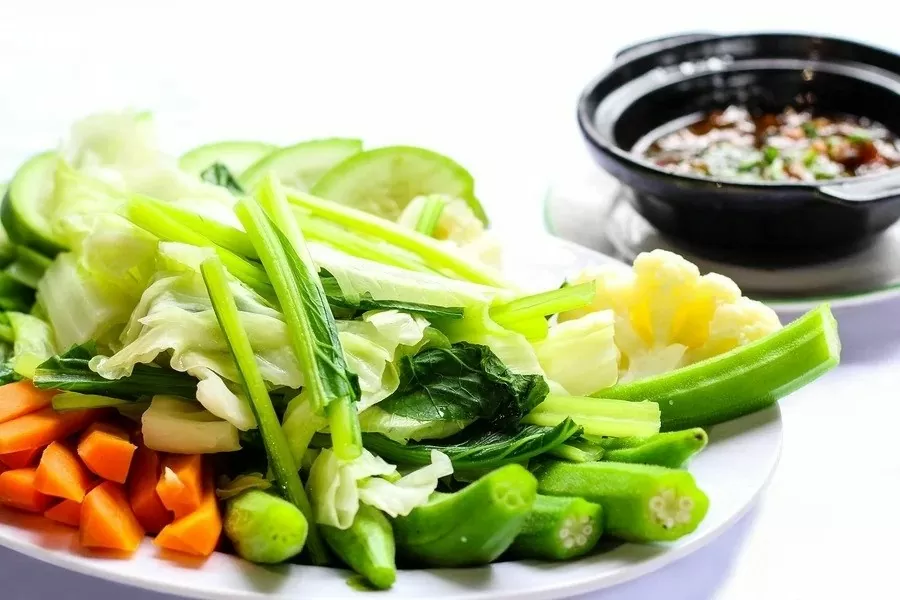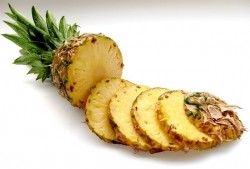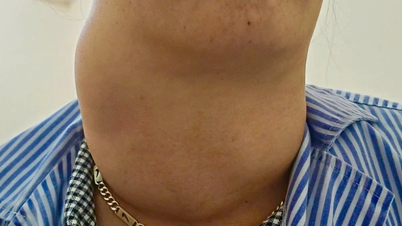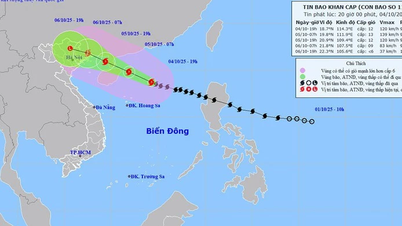 |
| Boiling is the simplest method of food preparation. (Source: NRECI Nutrition Institute) |
Boiling is one of the oldest and simplest methods of food preparation. It has a significant impact on nutritional value and health, improving digestibility, food safety and nutrient retention.
| Related news |
 Many health benefits of eating pineapple on an empty stomach in the morning Many health benefits of eating pineapple on an empty stomach in the morning |
Nutritionist Veena V, Aster Whitefield Hospital, Bengaluru, India, analyzes the benefits and limitations of eating boiled food in the article below.
Easily digestible food
Boiled foods are often easier to digest than raw or highly processed foods. The boiling process softens the tough fibers in vegetables and proteins, making them easier for the digestive system to digest.
This is especially beneficial for children, the elderly and those with sensitive digestive systems. On the positive side, it reduces fat intake and controls weight.
Retains most of the nutrients
Proper cooking helps retain most of the nutrients in food. Using the right amount of water and covering the pot while cooking can also minimize nutrient loss, especially water-soluble vitamins such as vitamin C and B group.
Food cooked evenly
Boiling is a simple cooking method, suitable for both beginners and experienced cooks. This method only requires a pot and a stove, no special cooking skills are required.
The water surrounding the food helps distribute heat evenly, ensuring the food cooks evenly. This is especially useful for foods like grains, pasta, and vegetables, avoiding half-cooked or undercooked foods.
Loss of nutrients if cooked for a long time
However, boiling has its limitations. Long cooking times can waste fuel. Some water-soluble pigments, such as betanin in beetroot, can be lost during cooking. To preserve the color of beetroot, boil the skin.
The flavor of food can also be impaired because flavor molecules leach into the water. Overcooking causes food to become mushy and loses water-soluble nutrients, especially vitamins B, C, and minerals.
Not meeting the body's needs for fat and other substances
Dr Veena V says that eating only boiled food for a long time can affect many organs of the body, depending on the balance and variety in the diet.
The lack of healthy fats in a diet that is all boiled can also lead to reduced absorption of fat-soluble vitamins A, D, E and K. Therefore, it is necessary to plan properly, combine a variety of vegetables, proteins, whole grains and add healthy fats to prevent long-term health problems.
Dr. Jayasree, clinical nutrition coordinator at KIMSHEALTH Trivandrum, India, says that eating raw vegetables is more beneficial as boiling can cause some micronutrients to be lost. To avoid this, she recommends eating raw salads to retain all the micronutrients and fiber.


![[Photo] General Secretary To Lam attends the 8th Congress of the Central Public Security Party Committee](https://vphoto.vietnam.vn/thumb/1200x675/vietnam/resource/IMAGE/2025/10/4/79fadf490f674dc483794f2d955f6045)
![[Photo] Solemn opening of the 8th Congress of the Central Public Security Party Committee, term 2025-2030](https://vphoto.vietnam.vn/thumb/1200x675/vietnam/resource/IMAGE/2025/10/4/f3b00fb779f44979809441a4dac5c7df)


![[Photo] Bustling Mid-Autumn Festival at the Museum of Ethnology](https://vphoto.vietnam.vn/thumb/1200x675/vietnam/resource/IMAGE/2025/10/4/da8d5927734d4ca58e3eced14bc435a3)














































![[VIDEO] Summary of Petrovietnam's 50th Anniversary Ceremony](https://vphoto.vietnam.vn/thumb/402x226/vietnam/resource/IMAGE/2025/10/4/abe133bdb8114793a16d4fe3e5bd0f12)

![[VIDEO] GENERAL SECRETARY TO LAM AWARDS PETROVIETNAM 8 GOLDEN WORDS: "PIONEER - EXCELLENT - SUSTAINABLE - GLOBAL"](https://vphoto.vietnam.vn/thumb/402x226/vietnam/resource/IMAGE/2025/7/23/c2fdb48863e846cfa9fb8e6ea9cf44e7)


































Comment (0)